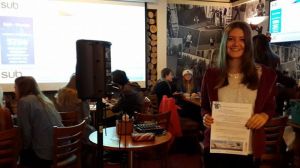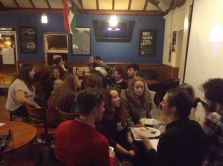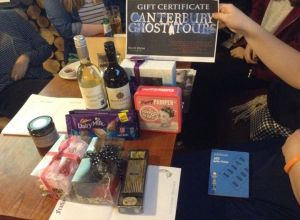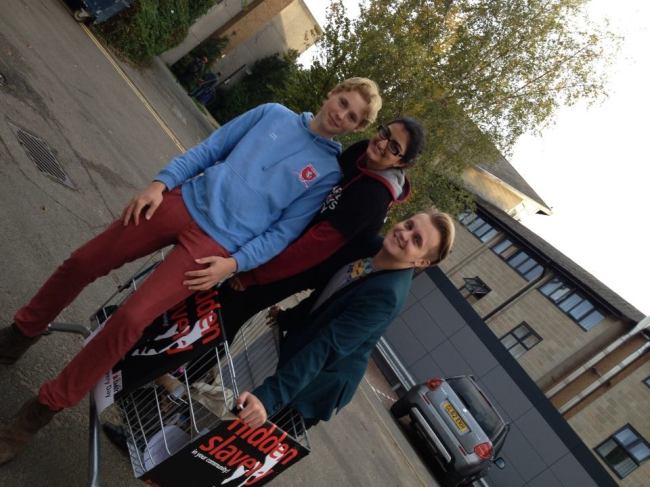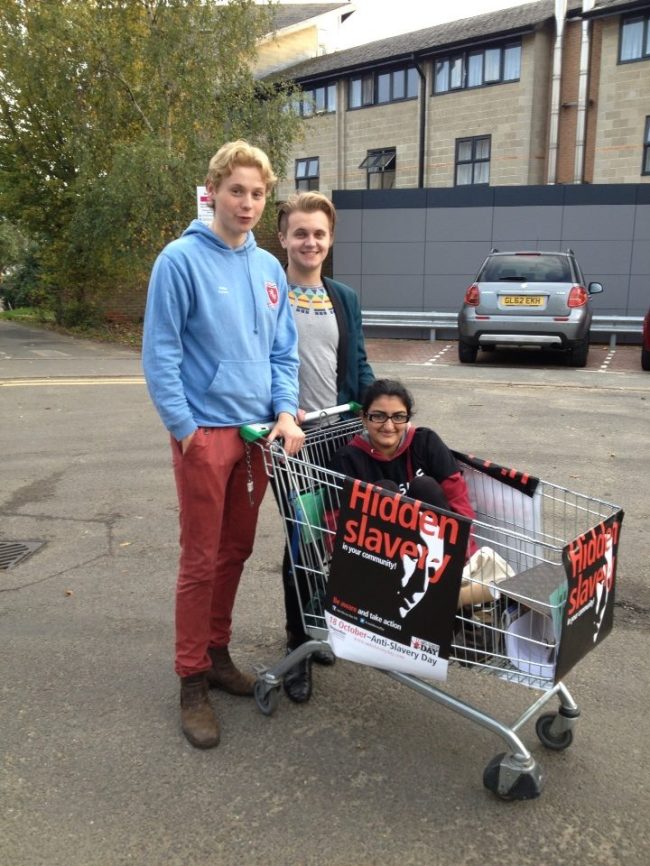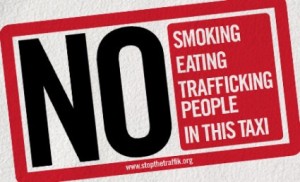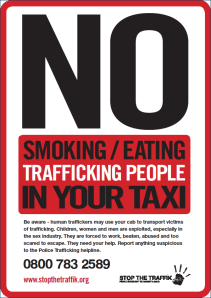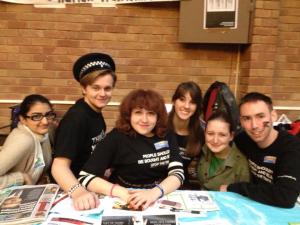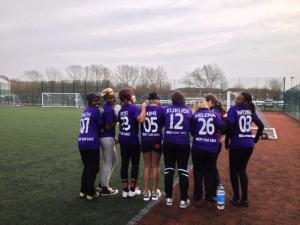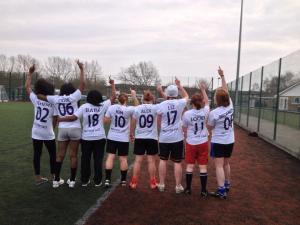By Maya Esslemont
It’s a common question. “If trafficked victims get the chance, why don’t they just run away?”
Many don’t realise that by talking to neighbours, the police, or a charity, modern-day slaves perceive their lives to be at risk. Indeed, the BBC’s extensive coverage of the three women held in captivity often saw panel guests wondering aloud how it was possible for trafficked people to go shopping, and complete other mundane tasks, without making a break for it. “How could they go all that time without trying to call someone?” one columnist asked.
Unfortunately, it’s not that simple.
In order for a victim to come forward, our country’s government must first beat traffickers in a battle for the trust of victims. For decades, we have been losing this fight.
When trafficking victims first arrive at a new location, the language is foreign and the officials are strangers. Most of the time, they have been ferried to multitudinous destinations and drugged during transit. This is why charities such as Stop the Traffik ask taxi drivers to stay vigilant for passengers who have no concept of time, location, or the language.
Yet, despite wide-spread knowledge that language is one of the main hurdles preventing victims from coming forward, the government has invested very little into tailored services that would allow victims to communicate freely. Many victims come from countries with corrupt systems of justice where traffickers can buy silence, and when we lack the ability to talk with victims, we also lack the ability to persuade them otherwise. There are currently very few specialist charitable facilities in the UK, and even fewer run by the government.
As a result, even victims who have been saved often go missing again, and this is especially true for children. More than two thirds of trafficked children disappear after being placed into care homes, running back to the arms of their captors in the belief that a life of servitude is safer than a life in Britain’s care system.
The figures are shocking, but should come as no surprise. Despite calls from dozens of charities and NGOs, we still lack one single council-funded safe house for trafficked children in the UK. Instead, child victims who have experienced specific sets of trauma, and have specific needs as a result, are put through a system which does not accommodate them at all.
Despite continued governmental liaison with the children’s charity ECPAT, two of the charity’s most important proposals are still ignored by local governments. Most notably, these recommendations from the organisation’s ‘Principles for the safe accommodation of child victims of trafficking‘:
Principle 8
“A child should be given access to a range of psychological, educational, health, social, legal, economic and language support that ‘brings safety to the child’ and helps them recover”
Principle 9
“Everyone working with child victims of trafficking should be trained to recognise and respond appropriately to their needs”
Human Trafficking UK offers recommendations befitting of these principles but this is not law, and there is no binding guarantee that local councils will abide by them. Whilst charities such Unseen are leading the way by working towards building the country’s first safehouse they, like many other organisations offering necessary services to child victims, still subsist on voluntary contributions of time and money.
Whilst community leaders pour what little time and energy they have into saving lives, the question is: What exactly has the government been doing to secure the trust of trafficking victims?
Having a nation of fragmented services offered by volunteers is heartening, but having no universal guideline muddies the waters, and makes it harder for victims to get help. Many studies evaluating the services offered to victims of any age conclude that the biggest barrier is, quite simply, a lack of knowledge on what help exists. This is a knowledge which both victims and the people responsible for them are lacking.
Shockingly, at the hands of our justice system, adult victims often meet a fate far worse than negligence. Our system not only fails to offer help to many victims – it also imprisons them. Currently, there is very little support for case workers and lawyers seeking to differentiate between the kind willing “illegal immigrants” and genuine victims. Although the proposed Human Trafficking bill mentions the need to “stop human trafficking from becoming an immigration issue” there still seems to be little guidance in place to achieve this.
A recent survey by Cambridge University found that of a cross-section of 103 woman deemed to be illegal immigrants, 53 were being trafficked at the point of crossing the border, and five women who did enter the country with free will were later subjected to slave-like conditions.
Even more concerning is the fact that 75% of the trafficking victims were not directed towards the National Referral Mechanism, which exists to ensure victims do not slip through the net of asylum appeals. Yet, five years after its birth, only 1 in 4 trafficking victims are even recognised by the framework, let alone passed on for legal or emotional support.
Worryingly, the article highlights the dilemma facing trafficked immigrants once they miss the NRM window:
“In only one case of human trafficking of all those identified by researchers did victim disclosure result in police investigating the crimes perpetrated against them.”
Although we are making some progress with the discussion of the Human Trafficking bill, there are still huge issues. The bill rightly states “victims should not be treated as criminals”, but the technicalities mostly focus on absolving victims of any work that their bosses force them to do (such as drug distribution or prostitution). This does not deal with the fact that many trafficking victims will be treated as criminals for simply being in the country without a passport.
So-called “illegal immigrants”, many of whom are victims of coercion, must spend an undisclosed amount of time in immigration detention centres. Then, when the ordeal is over, they will most likely be cut loose without support, or sent back to the same country where they are at increased danger of being re-trafficked. The bill does not seem to offer clear guidance when it comes to either deportation or rehabilitation.
Worst of all, as immigration removal centres struggle to house all asylum seekers at a time of budget cuts, trafficking victims and others may find themselves housed in prison alongside verified convicts. Using hundreds of Freedom of Information Act requests, the charity Avid has found that there are currently 557 asylum seekers in prisons which are neither equipped nor intended to hold migrants (trafficked or otherwise).
These short-term fixes are just not good enough when it comes to stopping the second fastest growing crime of the 21st Century.
As it stands, Britain’s authorities have done very little to win the trust of human beings who are bought and sold. It’s time the government used new legislative opportunities to stop focussing on tougher prison sentences, and start prioritising the lives of victims.
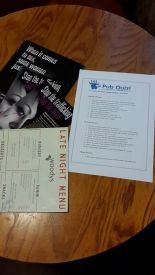 slavery. Following this line of thinking, we have successfully run a “PUB QUIZ” event on 12 February 2015 in Woody’s Bar at Kent university campus in Canterbury, https://www.facebook.com/UKAHT2014. The aim was to fundraise on behalf of a charity “Purple Teardrop” (http://www.purpleteardrop.org.uk/) in the hopes to raise money to support their anti-trafficking initiatives and to support the work of our society. Purple Teardrop charity is established by Soroptimist International:
slavery. Following this line of thinking, we have successfully run a “PUB QUIZ” event on 12 February 2015 in Woody’s Bar at Kent university campus in Canterbury, https://www.facebook.com/UKAHT2014. The aim was to fundraise on behalf of a charity “Purple Teardrop” (http://www.purpleteardrop.org.uk/) in the hopes to raise money to support their anti-trafficking initiatives and to support the work of our society. Purple Teardrop charity is established by Soroptimist International: